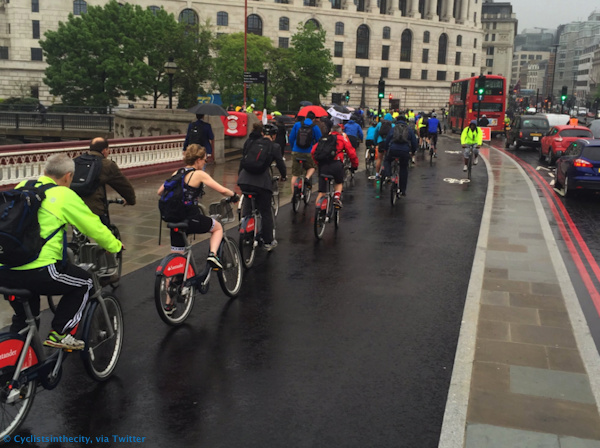
I presented at the BikePlus Future of Bike Share Conference in Manchester in late September, as part of a panel session on social benefits of public Bike Share Data. I framed my presentation in the context of open data, whereby operators or technology providers of bikeshare systems, and/or municipalities containing them, release data on the systems on an open data basis, allowing unrestricted analysis and reuse of the data. This is distinct from controlled access to the data, where typically an operator provides data to a local council in exchange for the authority’s blessing/cooperation/support.
The main part of the talk was in five sections, each outlining a social benefit of public data for bikeshare:
- Academic research, including themes such as urban mobility, multi-modal journeys, health outcomes
- Creating “app” ecosystems around a bikeshare – making greater and better use of often publicly financed systems, by the public.
- Effective targeting of cycling infrastructure – understanding where the users go so that infrastructure investments are beneficial.
- Improved public visibility – Press coverage and helping with public acceptance of a private business using publically owned assets (i.e. pavement space).
- Better management – novel visualisations of fleet and activity, and enabling easy experimentation of new redistribution strategies devised by specialists.
The final part of the presentation was a research and data summary from my perspective, and a wishlist. In particular, I mentioned and enthused on GBFS, an emerging, operator-led standard format for bikeshare data, which will likely be useful for integrating bikeshare with independent multi-city journey planners (e.g. Google Maps, CityMapper) – and useful for me too in managing data feeds from over 250 cities currently, in Bike Share Map.
My presentation can be viewed here:
The conference also included a led ride around some of Manchester’s key cycle infrastructure, including the Oxford Road segregated lanes. The bikeshare bikes provided for the ride were dockless bikes supplied by Ofo (who run UK systems in Cambridge and Hackney, London, as well as various other locations around the world) and Urbo (a new Irish start-up who are adopting the Chinese dockless model and bringing their bikes to Waltham Forest, also in London, launching at the end of October).
Photo: © Cyclistsinthecity, via Twitter.
2 replies on “Social Benefits from Public Bike Share Data”
Thanks for sharing and I am pleased that Stirling Council shares its bike share data. Regards, Alastair Majury
[…] London, meaning serious commute potential of these bikes. I have ridden an Ofo bike (a one-off in Manchester) and found it extremely comfortable – better Like Mobike, Ofo have a low joining fee, a flat […]